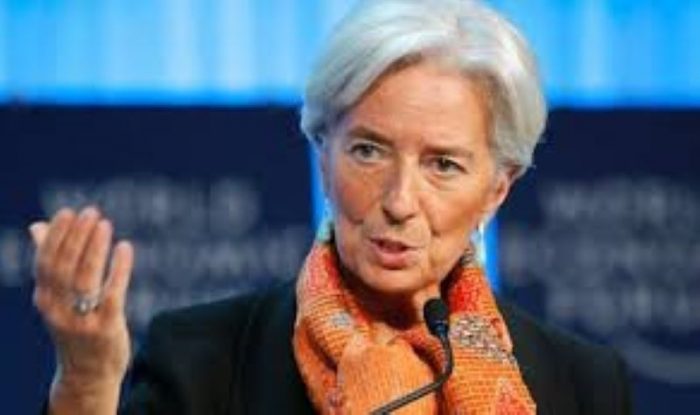The Executive Board of the International Monetary Fund (IMF) concluded the Article IV consultation with the Republic of Malawi on December 13, 2021.
Malawi’s economy has been severely affected by the COVID-19 pandemic and faces additional challenges. Growth has contracted by 4½ per cent in 2020 compared to pre-pandemic levels in 2019, while the number of cumulative positive cases of COVID-19 has more than doubled in the first half of 2021. In recent months, there are signs of gradual recovery and daily COVID-19 positive cases remain relatively low. Helped by a good harvest, real GDP growth in 2021 is projected at 2.2 per cent, up from 0.9 per cent in 2020. Inflation is expected to increase to 9.0 per cent in 2021 from 8.6 per cent in 2020, driven by increases in prices for fuel, fertilizers, and food.
President Chakwera’s Malawi Vision 2063 aims for the country to reach upper-middle-income status by 2063 by investing in physical and human capital. Under announced policies, which aim to implement a gradual pace of adjustment and maintain fiscal and current account deficits over the medium term to meet substantial development and social spending needs, the economy is projected by staff to recover gradually to reach 4.5 percent growth by 2023.
The outlook is predicated on the assumption of continued domestic and external financing. It assumes Malawi will be able to sustain higher public investment than experienced in the past decade, have strong fiscal multipliers, maintain fiscal and external deficits on the order of 10 percent of GDP over the medium term, and continue to access sizable financing from regional development banks and domestic borrowing to close an estimated financing gap of about 4-5 percent of GDP each year. The growing debt burden is, however, projected to crowd out private sector investment and hinder medium-term economic prospects. Moreover, in spite of emergency COVID-19 assistance in 2020 and SDR allocation in 2021, the Reserve Bank of Malawi (RBM)’s gross reserve assets are projected to decline to 1½ months of next year’s imports by end-2021, leaving the economy vulnerable to shocks.
Uncertainty surrounding the outlook remains high, and risks are tilted to the downside. The main risk to the outlook is a sudden stop of available financing especially from regional development banks. If this risk materializes, it could lead to an abrupt real exchange rate adjustment, import compression, significant impacts on growth and financial stability, and an adverse effect on the most vulnerable.
Executive Board Assessment
The outlook is predicated on the assumption of continued domestic and external financing
Executive Directors agreed with the thrust of the staff appraisal. They noted that Malawi’s economy has been severely affected by the pandemic and commended the authorities for their efforts to support the economy. Despite signs of gradual recovery, downside risks to the outlook persist. Directors stressed the need for the determined implementation of policy adjustments to address Malawi’s macroeconomic imbalances, restore debt sustainability, rebuild external buffers, and reduce poverty and inequality to improve social outcomes.
Directors underscored that restoring debt sustainability requires both addressing the legacy debt burden and adopting a strong fiscal adjustment program. While expenditures on containment measures and vaccine administration remain important in the near term, redoubling efforts on domestic revenue mobilization, curtailing and prioritizing current spending, and public financial management reforms are critical. Directors expressed concerns over Malawi’s high risk of overall and external public debt distress.
Directors noted that a tighter monetary policy stance would be needed if inflationary pressures materialize. In this regard, they encouraged careful monitoring of money growth and pressure on the exchange rate. Directors also underscored the importance of vigilant financial sector supervision, through close monitoring of potential risks to financial stability and the development of prudential policy tools.
Directors noted the substantially weaker external position relative to the level implied by economic fundamentals and desirable policies. They stressed that allowing for greater exchange rate flexibility through a careful approach, containing external imbalances, and rebuilding external buffers are critical to reducing Malawi’s vulnerabilities to external shocks.
Directors noted potential noncomplying disbursements during the 2018 Extended Credit Facility arrangement with the IMF and the need for resolution of this case of potential misreporting ahead of a new program. They urged the authorities to deliver on their commitment to conduct a special audit of foreign exchange reserves and improve the frequency and quality of data reporting.
Directors called for further efforts to strengthen public sector governance and institutions to safeguard scarce resources, strengthen policy effectiveness, and improve transparency and data provision, including on commitments and payments of COVID-19 related spending. Enhancing a robust cash management and control system of the national budget and strengthening the Board’s oversight of foreign exchange reserve management at the RBM is important.
Directors noted the catalytic role that an IMF arrangement could play to support the adjustment effort and mobilize donor financing. They emphasized that progress towards an arrangement would depend on a strong commitment to an adjustment program, sizeable financing support from the international community and Regional Development Banks in the form of nondebt creating flows.
While Malawi remains current on its payments to the IMF, Directors concurred with the post-financing assessment (PFA) conclusion, including with respect to Malawi’s capacity to repay the IMF.
It is expected that the next Article IV consultation with Malawi will be held on the standard 12-month cycle.


